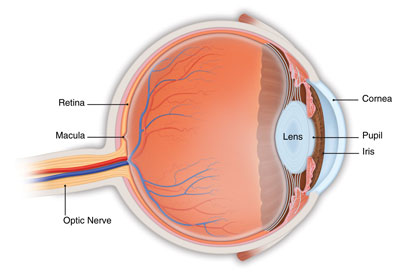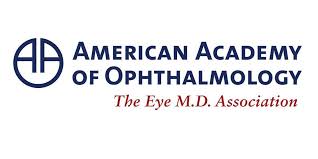This condition affects both distance and close vision and can make some activities—like threading a
needle or reading—very difficult or impossible.
Macular degeneration is the leading cause of severe vision loss in people over the age of 65.
Age–Related Macular Degeneration (AMD) and Nutritional Supplements
Age-related macular degeneration (AMD) is a disease caused by damage or breakdown of the macula,
the small part of the eye’s retina that is responsible for our central vision.

Although the exact causes of AMD are not fully understood, the Age-Related Eye Disease Study (AREDS
) has shown
that some antioxidant vitamins and zinc may reduce the impact of AMD in some people.
The study found that people at risk for developing advanced stages of AMD lowered their risk by
about 25% when
treated with a high-dose combination of vitamin C, vitamin E, and zinc. Among those who have either
no AMD or very
early AMD, the supplements did not appear to provide an apparent benefit.
Deposits under the retina called drusen, are a common sign of AMD. Drusen alone usually do not
cause vision loss,
but when they increase in size or numbers, this generally indicates an increased risk of developing
advanced AMD.
People at risk of developing advanced AMD may have significant drusen, prominent dry AMD, or
abnormal blood vessels
under the macula in one eye (wet form).
The new AREDS 2 nutrient supplementation shown to be beneficial contains:
Vitamin C
500mg
Vitamin E
400 IU
Lutein
10mg
Zeaxanthin
2mg
Zinc Oxide
80mg
Copper
2mg

